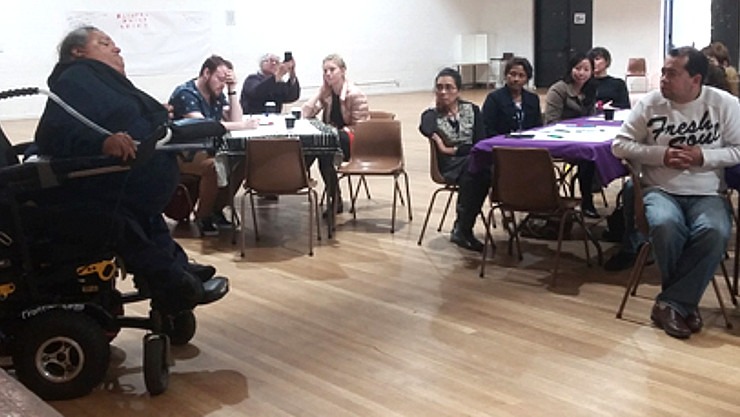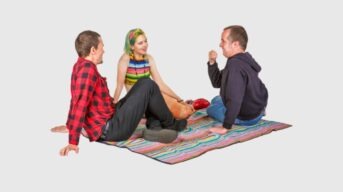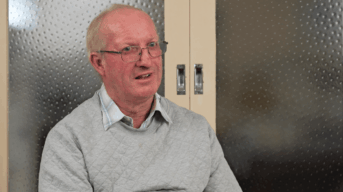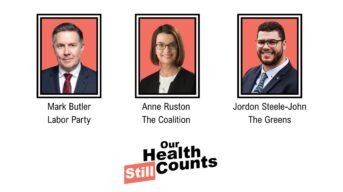
Words can hurt
“Can you imagine being called ‘crippled’ ever in your life?”
That’s the question George Ayoub posed as he began telling his story at the Does Disability Have a Language? bilingual barbeque forum held in Marrickville, Sydney.
Hosted by Council for Intellectual Disability (CID), the forum aimed to help bilingual workers understand disability better and conversely, for workers in the disability sector to understand culture and its impact on disability.
Language is the key
George, who is a CID member and presenter, recounted a time growing up when he heard of people with disability being sent to the “school for the crippled”. Thankfully, we’ve moved on from that!
It was both inspiring and challenging when he said bilingual disability workers need to be careful of offending others, but not to extent that they remain silent, feeling this often happens within our multi-lingual communities.
He reminded us that for people with disability, language is beyond inspiration. It’s about leadership, to challenge and to listen, and to demand the right to education, income, shelter and a life they want and choose to live.
Learning about disability
George said that we can sometimes be so worried about speaking the truth that people with disability in our communities miss out on their basic rights to exist. He commented that we can ruffle feathers in this sector, but also learn from it. CID’s Eban Pollard helped us understand these kinds of learnings, talking through a historical journey from the time of institutions and large residential centres where people with disability were hidden away, to present day self-advocacy and person centred active support.
Educating ourselves
We handed out factsheets tackling the basic truths and myths around culture and disability. Did you know that most culturally and linguistically diverse people with disability reside in Sydney’s Western suburbs?
Ester Karuso-Thurn, from CID, led us through an exercise on the many ways we communicate with each other, with or without culture.
We created a glossary of terms that didn’t label people based on their disability, words like “person”, “self” and “person I”m working with” instead of the dehumanising word “client.”
It was a chilly June day, but thanks to a strong sense of community among the participants – and the lovely hot food served from Addison Rd Community Centre’s Refugee Kitchen – we quickly warmed to each other and left the event feeling that as a group we had found a common language of hope, mentorship and leadership.
As a Community Engagement Officer my main take out was this – whether you use the words “a community of practise” or “capacity building” to describe becoming better helpers; or “ability” as opposed to “disability”, it’s always important to remember that words DO make an impact.
Does Disability Have a Language? was a partnership event with Ethnic Community Services Cooperative(ECSC) and Ability Linkers SSI.



 1800 424 065
1800 424 065 














